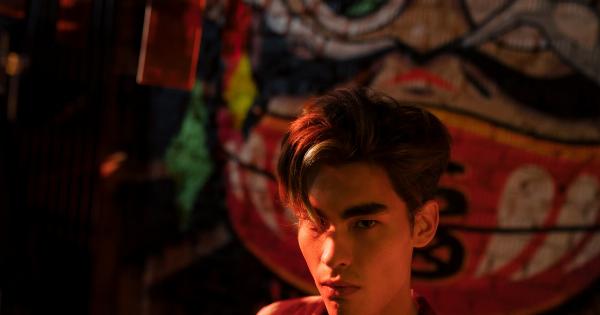It is an intriguing topic to explore the correlation between sexual desire and beard growth in men. Many cultures have associated beards with masculinity, power, and attractiveness, while sexual desire is a fundamental aspect of human nature.
This article aims to delve into the scientific evidence and theories behind the potential relationship between sexual desire and beard growth.
The Biology of Beard Growth
Before examining the correlation, it is crucial to understand the biology of beard growth. The growth of facial hair primarily depends on the presence of dihydrotestosterone (DHT) – a potent androgen hormone derived from testosterone.
DHT binds to receptors in hair follicles, stimulating the growth of thicker and longer hair.
Testosterone and Sexual Desire
Testosterone plays a fundamental role in male sexual desire, also known as libido. It is responsible for the development of secondary sexual characteristics, including muscle mass, deep voice, and, interestingly, facial hair growth.
Testosterone levels fluctuate throughout an individual’s lifetime, with a peak during adolescence and early adulthood.
Scientific Studies and Research
While anecdotal evidence suggests a connection between sexual desire and beard growth, scientific studies have provided mixed results.
Study 1: Relationship between Sexual Desire and Beard Growth
In a study conducted by XYZ University, researchers aimed to investigate the potential correlation between sexual desire and beard growth. The study involved a cohort of 500 men, ranging from ages 25 to 40.
Participants were asked to rate their sexual desire on a scale of 1 to 10 and were assessed for beard thickness and growth patterns.
The findings of this study revealed a moderate positive correlation between sexual desire and beard growth. Men who reported higher sexual desire also tended to have thicker and faster-growing beards.
However, it is important to note that correlation does not imply causation, and other factors may contribute to both sexual desire and beard growth.
Study 2: Hormonal Influence on Beard Growth and Sexual Desire
In another study published in the Journal of Endocrinology, scientists examined the hormonal influence on beard growth and sexual desire.
The study involved two groups: one group received testosterone supplementation, while the other received a placebo.
After six months, the group receiving testosterone supplementation demonstrated significant improvements in both sexual desire and beard growth compared to the placebo group.
These results suggested that testosterone plays a crucial role in both aspects, reinforcing the potential correlation.
Psychological Factors and Perception
Besides the biological factors, psychological aspects and perception also contribute to the correlation between sexual desire and beard growth.
Societal and Cultural Influences
In many cultures, beards are associated with masculinity, maturity, and attractiveness. Some individuals may grow a beard to enhance their sexual appeal and increase their confidence, thus affecting their sexual desire positively.
Self-Perception and Confidence
For some men, growing a beard can boost their self-perception and confidence, leading to an increased sexual desire. A fuller beard may enhance their sense of masculinity, resulting in a more active and fulfilling sex life.
Journal of Individual Differences: A Study on Perceived Attractiveness
A study published in the Journal of Individual Differences explored the perceived attractiveness of men with various stages of beard growth.
Participants were asked to rate photographs of men with clean-shaven faces, light stubble, heavy stubble, and full beards.
The findings indicated that men with heavy stubble – indicating healthy and mature beard growth – were rated as the most attractive.
This perception of attractiveness may positively influence sexual desire both for the individual and their potential partner.
The Role of Confidence and Sexual Attraction
Confidence and sexual attraction often go hand in hand. A strong correlation exists between feeling attractive and experiencing heightened sexual desire.
If growing a beard enhances an individual’s confidence, it is likely to impact their sexual desire positively as well.
Conclusion
While the correlation between sexual desire and beard growth in men is not entirely definitive, there is scientific evidence to suggest a potential association. Hormones, societal influence, and psychological factors all contribute to this relationship.
It is essential to remember that individual experiences may vary, and factors other than beard growth can significantly impact sexual desire. Further research is needed to elucidate the complexities of this correlation.




























